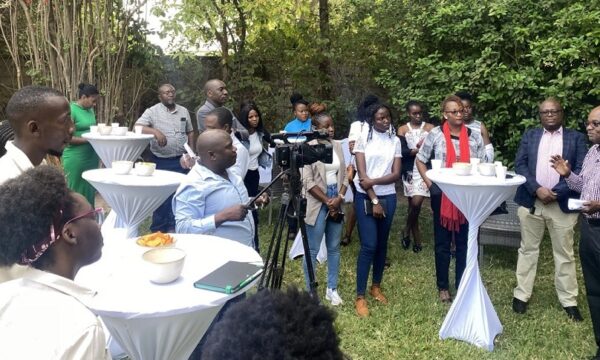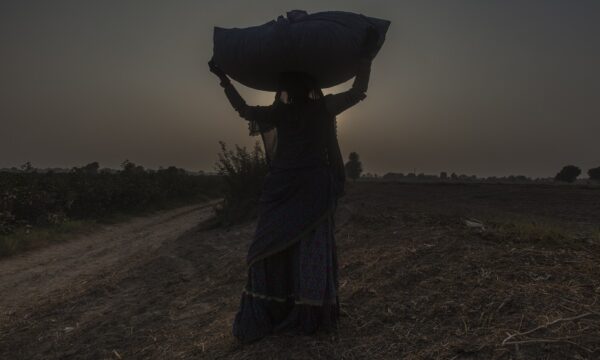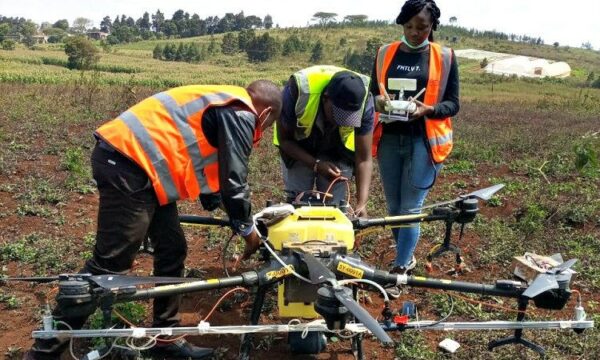
Photo (Copyright CABI): India’s tea accounts for around 27 percent of the world’s tea production – but like all crops it is susceptible to attack from pests and diseases.
Recently CABI scientists revealed that India’s tea – which accounts for around 27 percent of the world’s tea production and where in 2016 exports of 232.9 mn kg were worth Rs 4,493 crore, could be protected from devastating crop pests with more environmentally-friendly and sustainable biological controls rather than an over reliance on pesticides.
In this photo special, we present a range of images taken at the Hoolungooree Tea Estate in Assam, India, which charts the process of the harvest including, when and where necessary, the need to apply pest control methods before the tea leaves are ready to go from field to cup for consumers around the world to enjoy.
As part of research funded by Unilever and working with partners including the Tea Research Association (TRA) and The United Planters’ Association of Southern India, the researchers believe that ecological approaches to pest management have the potential to replace conventional pest management practices as part of an Integrated Pest Management (IPM) plan.

Photo (Copyright CABI): India is the second largest producer of tea globally and is the country’s primary beverage with 85 percent of all households consuming it. In this picture women play a key role in the harvest of healthy tea leaves – the start of the journey from field to cup.
The study showed that in all locations tested, despite the absence of pesticides, pest populations were kept at manageable levels. However, while this suggests that ecological approaches have the potential to replace conventional pest management practices, the costs of some of the interventions, namely neem and certain biopesticides, are considerably higher with no trade-offs from yield.

Photo (Copyright CABI): India also accounts for 12-13 percent of world tea exports. However, tea crops are hosts for a variety of pests and diseases which can cause annual yield losses ranging from 5 to 55 percent.
The scientists reviewed existing crop protection practices and limitations to current techniques to develop a ‘road map’ to steer the industry towards the use of less pesticides. Three tea gardens in different zones of Assam, and two in South India were focused on to validate and compare different ecological practices with ‘business as usual’ methods employed.
In all locations, despite the absence of pesticides, pest populations were kept at manageable levels, largely comparable with ‘business as usual’ practices. But the results do raise some challenges in relation to yield and costs where ecological practices have been adopted.

Photo (Copyright CABI): Globally, 1031 species of arthropods are associated with tea mono-culture (Hazarika et al. 2009) and is attacked by nearly 250 insect species (Barthakur 2011). In this picture a tea looper pest threatens the crop.
Suz Neave, Project Manager at CABI, said, “The project has taken the first step steps to validate the adoption of IPM and ecological practices in tea as well as highlighting that estate management and attitude play a key role in the implementation of a strategy to reduce pesticides.”

Photo (Copyright CABI): CABI is working to help reduce the use of pesticides to fight pests including those that attack tea crops. In this picture the application of pesticides is necessary as part of an Integrated Pest Management strategy.
In February 2016, as part of the project, CABI in South Asia and the Tocklai Tea Research Institute (TTRI) in India organized a workshop looking at sustainable tea production through ecological farming practices and non-conventional methods for tea growing. The event was attended by over 250 planters across the state of Assam and experts from academia and industry.

Photo (Copyright CABI): Reaping the harvest: a worker collects healthy tea leaves ready for processing from the field to the cup.

Photo (Pixabay): Around the world 2 billion people will drink tea every morning.
Additional information
Project page
Find out more about how CABI is working with Unilever and partners to promote sustainable tea production in India from the project page.
Donors
Partners
Tea Research Association (TRA)
The United Planters Association of Southern India (UPASI)
Related publications
Dashora K, Roy S, Nagpal A, Roy S, Flood J, Khetarpal R, Neave S, Prasad AK, Muraleedharan N (2017) Pest Management through Bacillus thuringiensis (Bt) in a Tea-Silkworm Ecosystem: Status and Potential Prospects. Applied Microbiology and Biotechnology 101(5):1795-1803. DOI: 10.1007/s00253-017-8113-z.
Dashora K, Khetarpal K, Nagpal A, Muraleedharan N, Roy S (2016) Sustainable tea production. Current Science 111(1): 19-20
Roy S, Handique G, Muraleedharan N, Dashora K, Roy SM, Mukhopadhyay A, Babu A (2016) Use of plant extracts for tea pest management in India. Applied Microbiology and Biotechnology 100(11):4831-44. DOI: 10.1007/s00253-016-7522-8
Related News & Blogs
CABI’s very own certified drone pilot takes flight to strengthen partnerships for precision crop pest control
The sky’s the limit for Violet Ochieng, CABI’s very own KCAA-Certified drone pilot, who visited the UK from Kenya to help strengthen partnerships for greater use of drone technology for precision crop pest management. Ms Ochieng, Research Officer – Dro…
19 June 2024




